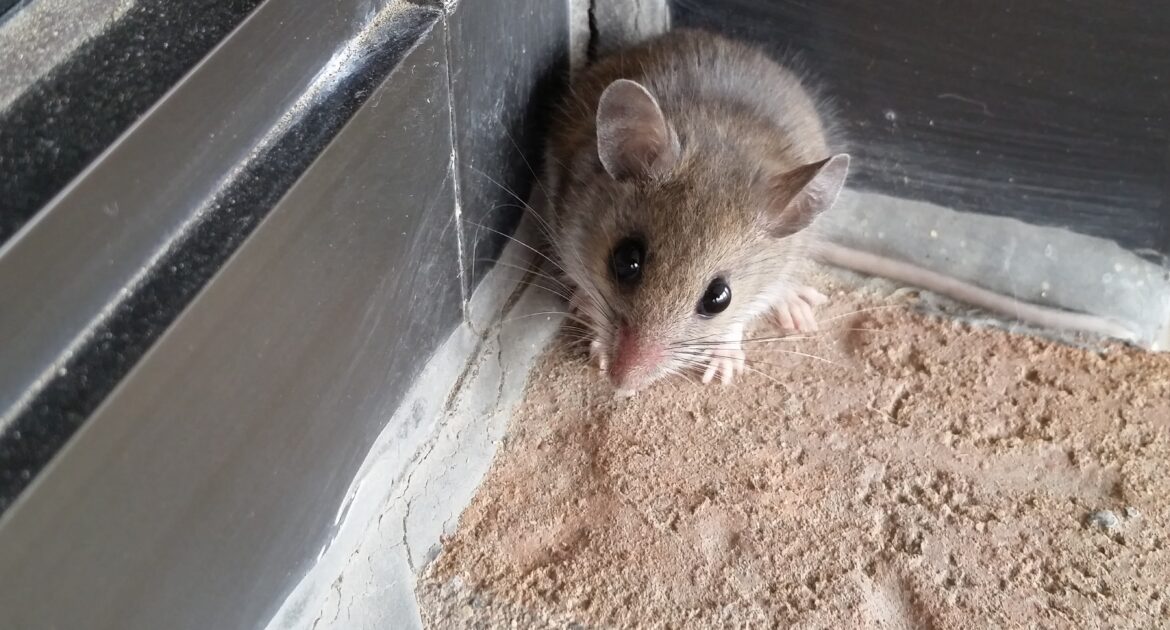Within the confines of our home, we often think of mice as bothersome and destructive. They come to our kitchens for a snack at night and lurk around our attics and basement. Getting rid of mice becomes a requirement in such cases and seeking out professional help should be the first course of action. With the camping season in full swing, it’s important to consider the potential chaos cause by mice invaders in people’s recreational vehicles (RV). If you leave your RV or other vehicle unattended for a period of time, mice may very well find their way inside and start making it their home. Here are five considerations to keep in mind when thinking about mice in your RV:
- Damage
- Health risks
- Precautions to take
- Using repellants
- Cleaning a vehicle infested with mice
Damage To Your RV
Even a single mouse can cause a lot of damage as these little animals will take any refuge from the elements. If you have mice living in your RV, you might find shredded upholstery as they search for nesting materials, gnawed insulation, chewed wires and hoses and the like. Tons of damage can happen as a result. A fluid or gas leak are just some examples of what might happen and could create large unexpected repair costs, not to mention it can be potentially dangerous.
Health Risks
Harmful bacteria and viruses are frequently carried by mice and other rodents. You run the risk of a potential infection if you are near rodent droppings or nest materials. A particularly significant risk is contracting the Hantavirus, which causes the Hantavirus pulmonary syndrome. It can be fatal in some cases and this virus is most common to the cotton rat, white footed mouse and deer mouse.
Precautions To Take
There are different steps you can take to make sure your vehicle is much less attractive to mice. These steps typically include not parking your RV in camping areas where rodents might be sneaking around, keeping food substances away from the vehicle, popping the hood if the RV is in a parking space as light scares rodents, making your garage rodent proof and so on.
Using Repellents
When it comes to RV and other vehicle repellants, you need to understand that there are many products that can get the job done. Mice and other rodents have a very keen sense of smell which is easily irritated by pungent odors. Using mothballs is probably the most popular method, but be careful about how you use them (avoid harmful exposure by reading the precautions). Dryer sheets are also an option as they smell better than mothballs. Lastly, another good method is using peppermint.
With hoses and wires for water and electricity, these are common entry points for mice.Cleaning A Vehicle Infested With Mice
It’s important to sanitize your vehicle in order to make sure the mice don’t return. When it comes to cleaning, the first thing to remember is to protect yourself and open the windows or doors to ensure there is adequate ventilation. Spread a mixture of water and bleach over the infested area. Give the mixture time to soak in and then use a paper towel to wipe the area. After removing the gloves, soap and wash your hands thoroughly.
Looking To Get Rid Of Mice From Your RV/Vehicle? Contact Skedaddle Immediately
Skedaddle Humane Wildlife Control is a company that has almost three decades of experience when it comes to helping home and vehicle owners be free from these furry critters. Skedaddle focuses on humane removal and exclusion methods, which is how the company was able to successfully help more than 200,000 homeowners to date. If you’re looking to take your family on a trip with your RV this summer but can’t be bothered to chase out the mice family that has taken refuge in it, simply get in touch with Skedaddle. Getting rid of mice is not a problem for company technicians, so reach out to Skedaddle today and ensure your family has a lovely and relaxed summer.



